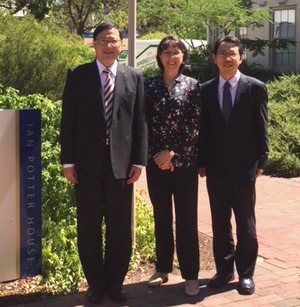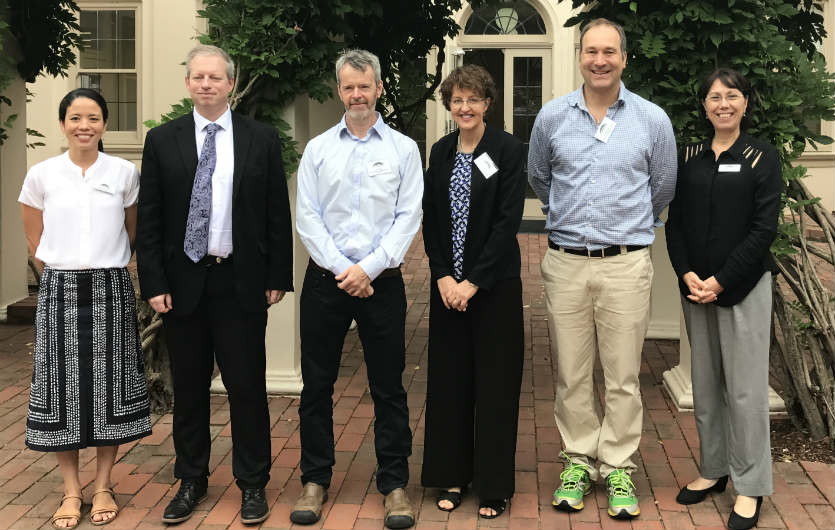
Australia–Taiwan research collaborations were discussed during a visit to the Academy in January by Dr Suang-Jing Pong and Mr Kai-Shyr Wang, from the Science and Technology Division of the Taipei Economic and Cultural Office in Australia. The Academy had a productive researcher exchange program with Taiwan between 1992 and 2011 through the Ministry of Science and Technology of Taiwan. Taiwan has been identified as a priority country under the Australian Government’s National Innovation Science Agenda and the Academy will continue to explore potential funding schemes that could support the reinstatement of a bilateral researcher exchange program with Taiwan and facilitate bilateral collaborations.
Professor Gordon McBean, President of the International Council for Science (ICSU) and an internationally recognised meteorologist and climate change expert, visited Canberra in February as a guest of the Australian Meteorological and Oceanographic Society (AMOS). Professor McBean was one of the plenary speakers at the 2017 AMOS national conference, and also spoke at an event at the Shine Dome organised by the Academy and AMOS to celebrate the contributions made to science by Professor Michael Raupach FAA FTSE. Professor Raupach was one of Australia’s most distinguished climate scientists and was co-chair of both editions of the Academy’s publication, The science of climate change: questions and answers.
While in Canberra, Professor McBean met with the secretaries of the Department of the Environment and Energy, and the Department of Industry, Innovation and Science to discuss the work of ICSU, the global Future Earth initiative, and the newly established Future Earth Australia program.
The rise in global commitments to brain research—with a particular focus on existing strengths and future potential of Europe and Australia—was the subject of a meeting of science leaders at the Academy in January.
The meeting included Executive Director of the European Union Human Brain Project Mr Christoph Ebell, Australia’s Chief Scientist Dr Alan Finkel AO FAA FTSE, Australian Brain Alliance members Professor John Bekkers and Professor Greg Stuart FAA, and Academy Chief Executive Ms Anna-Maria Arabia.
The Human Brain Project, established in 2013, is a European Commission Future and Emerging Technologies Flagship funded largely by the European Union. With €1 billion over 10 years, the aim of the project is to develop an ICT-based scientific research infrastructure for brain research, cognitive neuroscience and brain-inspired computing.
The Australian Brain Alliance, formed early last year, is made up of 30 member and 16 supporting organisations and aims to coordinate and boost Australia’s brain research sector by establishing a national brain initiative on par with those in the US, EU, Japan and China. Alliance co-chairs, Emeritus Professor Patricia Michie and Professor Linda Richards FAA, also met with Mr Ebell regarding the scientific agenda of the Human Brain Project and ways to enhance existing synergies between the project and the alliance’s vision for a proposed Australian Brain Initiative.
Mr Ebell’s visit culminated in a roundtable presentation at the Academy to a group of officials from a number of European embassies and high commissions.

© 2026 Australian Academy of Science